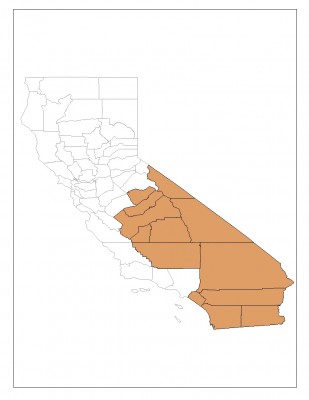
While not a new idea, Jeff Stone, a California Republican on the Riverside County Board of Supervisors, wants to explore the idea of secession. The idea is to create a utopian conservative enclave that can address issues of improved border security, balanced budgets, better schools, lower taxes, and a stronger economy. While actual secession is very unlikely, a debate can address worthwhile issues of governance and policy, particularly the distribution of tax revenue. The geography of this new state would be rural and agricultural, with vast tracts of desert, akin to a neighbouring state to the east. So, it was fitting that Democratic Governor Jerry Brown’s spokesman, Gil Duran, served up this diss::
“It’s a supremely ridiculous waste of everybody’s time. If you want to live in a Republican state with very conservative right-wing laws, then there’s a place called Arizona.”
Speaking of Arizona, let’s be clear where low taxes leads a state in an economic downturn. This Harper’s article from last summer highlights the problems in a state loathe to raise taxes and where selloffs and privatization only goes so far::
“Although dozens of states are facing budget crises, the situation in Arizona is arguably the nation’s worst, graver even than in California. A horrific budget deficit has been papered over with massive borrowing and accounting gimmickry, and the state may yet have to issue IOUs to employees and vendors. All-day kindergarten has been eliminated statewide, and some districts have adopted a four-day school week. Arizona’s state parks, despite bringing in 2 million visitors and $266 million annually, have lost 80 percent of their budget, with up to two thirds of the parks now in danger of closure. The legislature slashed the budget for the Department of Revenue, which required the agency to fire hundreds of state auditors and tax collectors; lawmakers boasted that these measures saved $25 million, but a top official in the department estimated that the state would miss out on $174 million in tax collections as a result.”
While Arizona flounders, the article notes political attention has drifted to culture war topics like immigration.
The idea of a “South California” brings into sharp relief the problem of governance in a diverse state—a state with several distinct regions, each with their own demographics, industrial bases, access to water resources, and political cultures. If California’s budgetary woes continue, which is very likely given the slow recovery prospects, it’s natural that geographic alignments become stronger and influence political discourse. In the past, this has invoked the culture war, but this can be dicey terrain. Ask Pete Wilson, who played that card only to get hammered for it later and estranged by his own party.

Comments